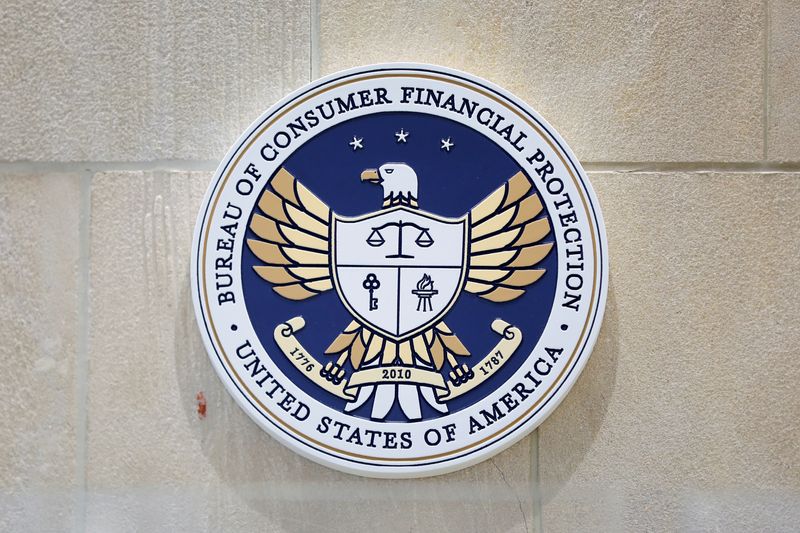By Jody Godoy
(Reuters) -The U.S. Consumer Financial Protection Bureau's funding structure is constitutional, a Manhattan appeals court ruled on Thursday, as the U.S. Supreme Court prepares to consider the issue next term.
The 2nd U.S. Circuit Court of Appeals said that Congress' decision to fund the CFPB independently through the Federal Reserve, instead of annual appropriations bills, does not conflict with the U.S. Constitution's separation of executive and legislative powers.
The question of the CFPB's funding is before the U.S. Supreme Court in a closly-watched case that the CFPB says could threaten twelve years of financial regulation.
Congress created the agency in 2010 through the passage of the Dodd-Frank Act in response to the 2008 financial crisis, giving it authority to regulate payday lending, debt collection and other consumer financial businesses.
The CFPB has faced several legal challenges to its authority; the 2nd Circuit is not the first court to uphold the agency's funding structure.
However, the ruling comes as the agency is asking the U.S. Supreme Court to overturn a ruling by the New Orleans-based 5th U.S. Circuit Court of Appeals finding the CFPB's funding unconstitutional.
In seeking Supreme Court review, the CFPB said the ruling "raises grave concerns" for the financial industry, and could undermine "virtually every action" the agency has taken since its creation.
The court accepted the case and will hear arguments during its next term, which begins in October.
Writing for the 2nd Circuit on Thursday, U.S. Circuit Court Judge Richard Sullivan said the constitution only requires that expenditures be authorized by an act of Congress.
Sullivan, who was appointed by then-President Donald Trump in 2018, wrote that U.S. Supreme Court decisions and historical principles of congressional spending support that conclusion, he wrote.
The ruling denied a request by the Law Offices of Crystal Moroney to end a CFPB inquiry into the law firm's work as a debt collector.

Richard Samp, an attorney who represents Moroney, said she plans to ask the U.S. Supreme Court to review the decision.
The case is Consumer Financial Protection Bureau v. Law Offices Of Crystal Moroney PC, 2nd U.S. Circuit Court of Appeals, No. 20-3471.